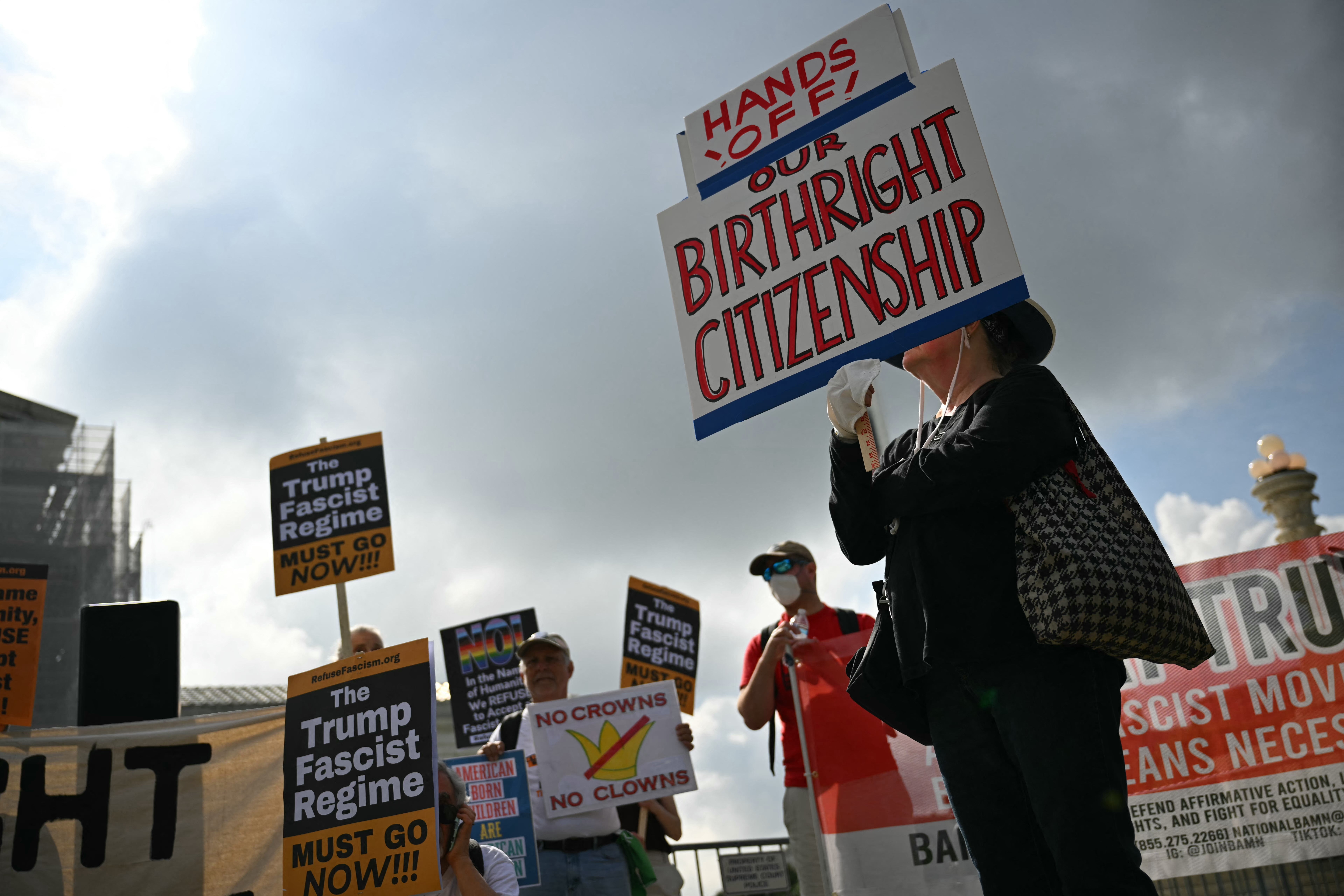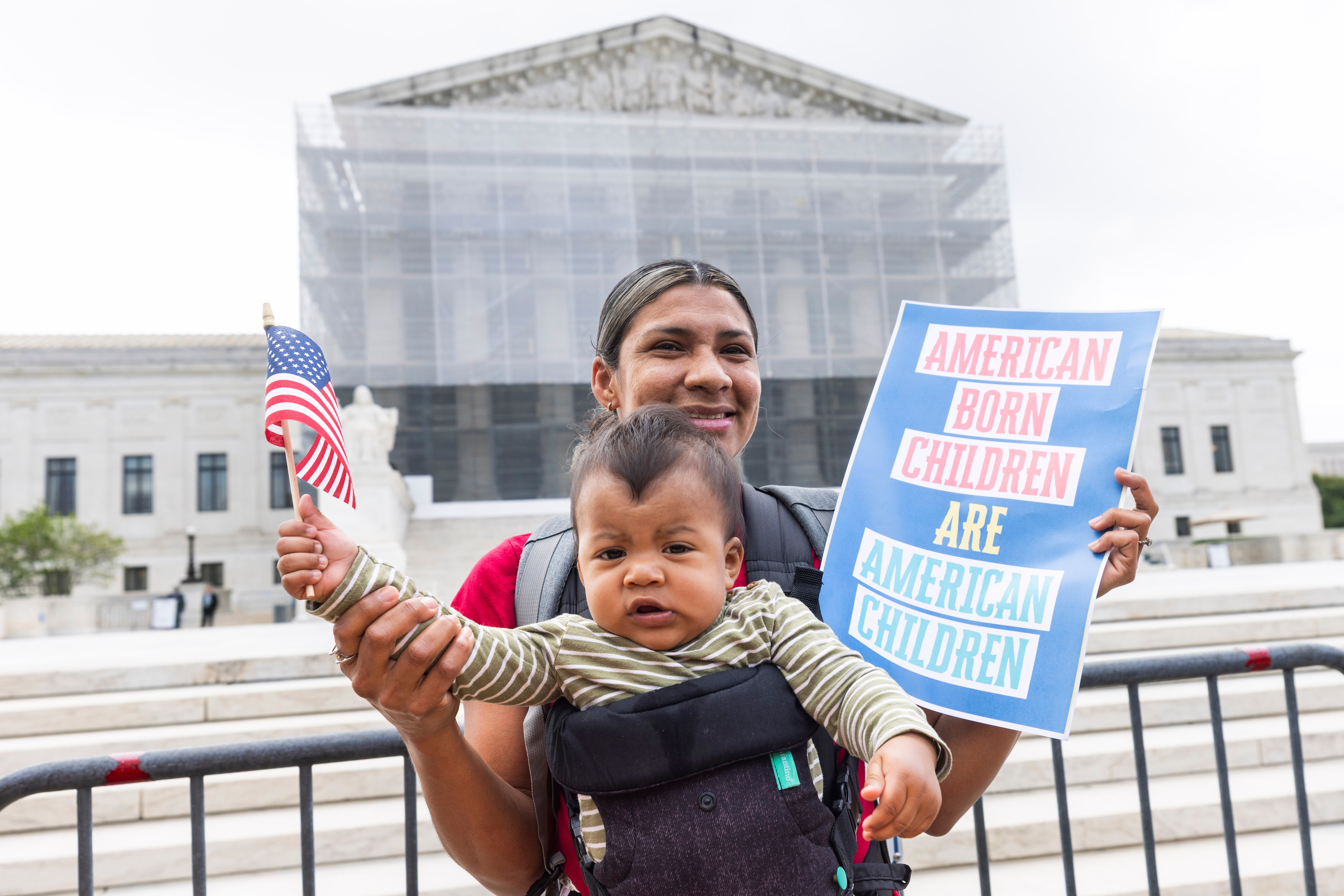ARTICLE AD BOX
A series of federal court rulings across the country struck down Donald Trump’s attempt to strip citizenship from newborn Americans born to certain immigrant parents. But the government argues those decisions should be limited to the individual states — and pregnant mothers — who sued him and won.
During oral arguments on the issue at the Supreme Court on Thursday, Justice Ketanji Brown Jackson called the administration’s position a “catch-me-if-you-can kind of regime,” where court orders would protect only the individuals in a case, not the millions of Americans who could be impacted.
Trump’s position argues that everyone would need a lawyer “to stop the government from violating anyone’s rights,” she said. “I don’t understand how that is remotely consistent with the rule of law.”

Trump is using challenges against his birthright citizenship executive order to try to make a case against the power of judges to issue nationwide injunctions, which have thwarted a blitz of White House directives that judges across the ideological spectrum found unconstitutional.
If the high court agreed to limit the scope of injunctions against the president’s birthright citizenship order, it would cause an unworkable patchwork of constitutional rights, where children could be citizens in one state and not in another, according to legal scholars and immigrants’ advocates.
“On the merits, you are wrong,” Justice Elena Kagan told Trump’s legal team. “The [order] is unlawful.”
The government has been “losing constantly” on the issue, she said.
“It’s up to you to decide whether to take this case to us. If I were in your shoes, there is no way I’d approach the Supreme Court with this case,” she added. “You keep losing in the lower courts.”
Forcing impacted Americans to file individual lawsuits for citizenship means “the ones who can’t afford to go to court, they’re the ones who are going to lose,” Kagan said.
“This is not a hypothetical,” she added. “Every court has ruled against you.”

Damning court orders from three federal judges in Maryland, Massachusetts and Washington state — affirmed by three federal appeals court panels — have blocked Trump’s measure from taking effect nationwide. A judge appointed by Ronald Reagan called the executive order “blatantly unconstitutional” and accused the president of treating the rule of law as “something to navigate around or simply ignore, whether that be for political or personal gain.” Another judge said Trump’s order “runs counter to our nation’s 250-year history of citizenship by birth.”
The 14th Amendment’s citizenship clause plainly states that “all persons born or naturalized in the United States, and subject to the jurisdiction thereof, are citizens of the United States and of the state wherein they reside.”
Under the terms of Trump’s order, children can be denied citizenship if their “mother was unlawfully present” or “lawful but temporary,” and if the father “was not a United States citizen or lawful permanent resident at the time of said person’s birth.”
If allowed to take effect, the order would undo more than a century of constitutional precedent, virtually rewriting the 14th Amendment to determine who is, and who isn’t, eligible for citizenship.
Justice Sonia Sotomayor said the court “can act quickly if we are worried about those thousands of children who are going to be born without citizenship papers, that could render them stateless.”
“If we’re afraid that this, or even have a thought that this, is unlawful executive action, that it is Congress who decides citizenship, not the executive — if we believe that, why should we permit those countless others to be subject to what we think is an unlawful executive action?” she said.
U.S. solicitor general John Sauer called the recent “cascade of universal injunctions” against the administration a “bipartisan problem” that exceeds judicial authority.
“The suggestion that our position on the merits is weak is profoundly mistaken,” he said. “The vision of the district courts that’s reflected in the issuance of these nationwide injunctions is a vision of them as a roving commission to correct every legal wrong that they can consider and to exercise general legal oversight over the executive branch.”









 English (US) ·
English (US) ·